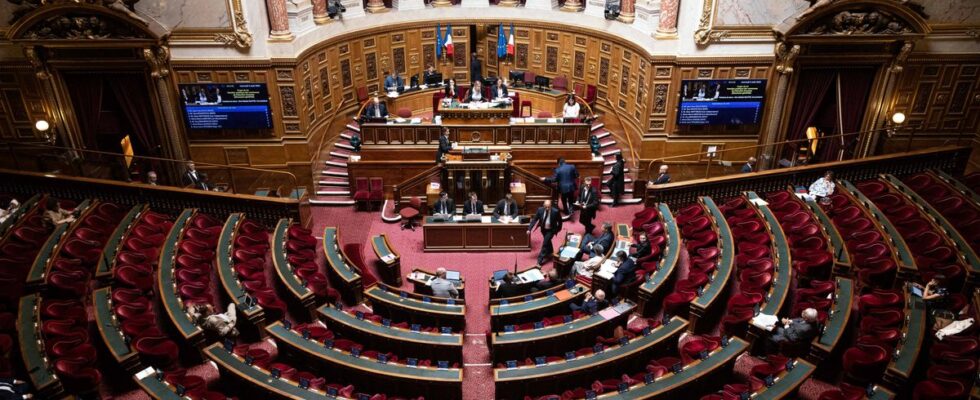The bill for the acceleration of renewable energies carried by Agnès Pannier-Runacher is reaching its goal: after long consultations and tough negotiations, Parliament is preparing to adopt it definitively on Tuesday, by a final vote of the Senate. In the midst of the energy crisis and under the pressure of global warming, this text aims to make France catch up on its great delay in renewable energies.
After having been the subject of a compromise between deputies and senators, the text must be adopted in the afternoon, at the heart of a day of mobilization against the pension reform. It intends to meet the objective set by President Emmanuel Macron for 2050 to multiply by ten the production capacity of solar energy to exceed 100 GW and to deploy 50 wind farms at sea to reach 40 GW.
It aims to “remove all the obstacles that delay the deployment of projects”, underlined the Minister of Energy Transition Agnès Pannier-Runacher who fought hard to gain support in the oppositions on the right and on the left.
The endorsement of the municipalities
“We are the only European country not to have achieved its objectives” in terms of wind and solar power, she told the deputies who gave their last green light last week. The text is divided into major sections: simplification of administrative procedures to reduce project deployment time; acceleration of the development of solar energy and offshore wind; improving the local acceptability of projects.
In both chambers, as in the joint joint committee, the fiercest negotiations focused in particular on the planning of areas for accelerating the deployment of renewable energies, with the approval of the municipalities, and on possible exclusion zones.
Local elected officials “propose and have the last word on zoning”, underlined Agnès Pannier-Runacher. And exclusion zones will only be possible for territories that validate acceleration zones, she recalled. The left fears the return of the veto of the mayors, which LR demanded for the whole of the territory. And NGOs and players in the renewables sector criticize a “gas plant”. For Greenpeace France, “if the text is rather satisfactory on offshore wind power, it remains too late and limited on solar power, and above all very insufficient on onshore wind power”.

